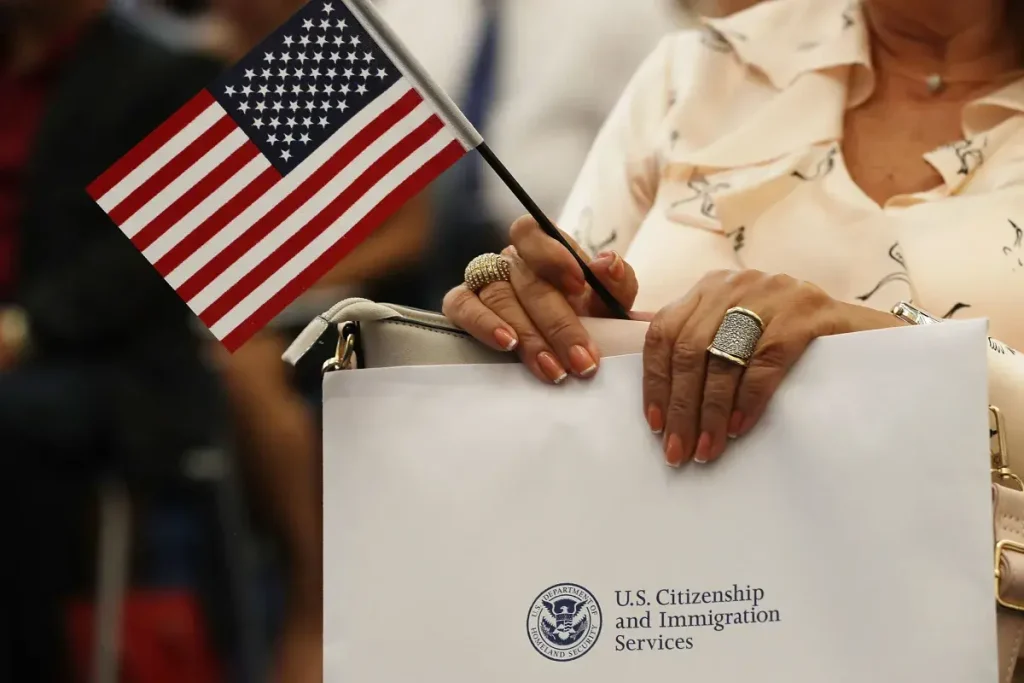USC Warns H-1B Holders as Trump’s Immigration Crackdown Takes Effect
The University of Southern California has advised its faculty and staff holding H-1B work visas to postpone international travel plans amidst significant changes to U.S. immigration policy. “Out of an abundance of caution, all faculty and staff in H-1B status currently in the U.S. should put international travel plans on hold until they receive further guidance,” the university stated according to The Daily Trojan. USC went even further, recommending that H-1B holders currently abroad should “strongly consider” returning to the United States before the new presidential proclamation takes effect. This cautionary stance reflects the uncertainty surrounding how the new policy might impact visa holders’ ability to re-enter the country and maintain their immigration status, particularly given that USC obtained approval for 108 H-1B visas for the 2025 fiscal year.
The warning comes in response to President Donald Trump’s September 19 proclamation, which introduces a $100,000 fee for each new H-1B petition filed after September 21. This substantial fee will remain in effect for at least 12 months, though existing H-1B holders and those seeking renewals or amendments are exempt. The White House has framed this policy as a necessary measure to prevent misuse of the visa program and protect American workers from potential displacement. Beyond the fee increase, the Department of Homeland Security has also proposed revisions to the H-1B selection process that would prioritize applications offering higher wages or tied to positions deemed “higher-skilled” if applications exceed the annual cap of 85,000 new visas. Supporters of this wage-based approach argue it addresses long-standing concerns that some companies have exploited the H-1B program to hire foreign workers at lower salaries than their American counterparts, particularly in STEM fields.
The impact of these changes extends far beyond paperwork and fees, touching the lives and careers of thousands of international professionals and academics. Aisling Kelliher, an associate professor of cinematic arts at USC who initially came to the United States on an H-1B visa to conduct doctoral research at MIT before eventually obtaining a green card, highlighted the human element of this situation. “One of the primary reasons why people come here as well is because of the international reputation of the American education system,” she told The Daily Trojan. “It’s a huge opportunity, both to come here as an immigrant and to receive an education, and then also to be able to continue as a researcher and as a teacher within the system that you’ve learned from.” Her perspective illuminates the personal and professional journeys that are now complicated by the shifting immigration landscape.
Reactions to the policy changes have been swift and divided. White House spokesperson Abigail Jackson defended the move, telling Newsweek that “President Trump promised to put American workers first, and his common sense action on H1-B visas does just that by discouraging companies from spamming the system and driving down American wages, while providing certainty to employers who need to bring the best talent from overseas.” However, small business owners and entrepreneurs have expressed serious concerns about the financial burden. James Harold Webb, an entrepreneur, noted to Newsweek that the new fee “will have a significant impact on small businesses and startups” by creating “higher employment costs, bigger startup budgets, and an increased need for capital; challenges most small businesses are simply not prepared for.” He emphasized the particularly troubling aspect of the policy’s sudden implementation: “What’s most concerning is that this rule came out of nowhere. For entrepreneurs, surprises like this force constant adjustments just to stay afloat.”
The policy’s potential broader economic consequences have also come under scrutiny from immigration experts. Christi Jackson, a partner at Laura Devine Immigration, observed that “both large and small tech firms depend heavily on H-1B talent” and argued that these workers “aren’t displacing American jobs; they’re filling critical gaps that would otherwise remain vacant.” Her assessment suggests the new measures could ultimately harm rather than help the American economy. This concern appears to be shared by a diverse coalition of stakeholders who filed the first legal challenge to the proclamation just last Friday in San Francisco. The lawsuit, brought by unions, employers, and religious organizations, aims to prevent the implementation of the $100,000 fee, signaling that the policy faces not only criticism but formal legal opposition.
As universities like USC and employers across the country closely monitor these developments, the future remains uncertain for H-1B visa holders and the institutions that rely on their talents. The Trump administration could potentially implement additional changes to the program in the coming months, further reshaping the landscape of high-skilled immigration to the United States. For now, thousands of international professionals find themselves navigating an increasingly complex immigration system while universities and businesses attempt to adapt to these new realities. The tension between protecting American jobs and maintaining America’s position as a global destination for talent continues to define this policy area, with real consequences for individuals whose careers, research, and lives span international boundaries.















